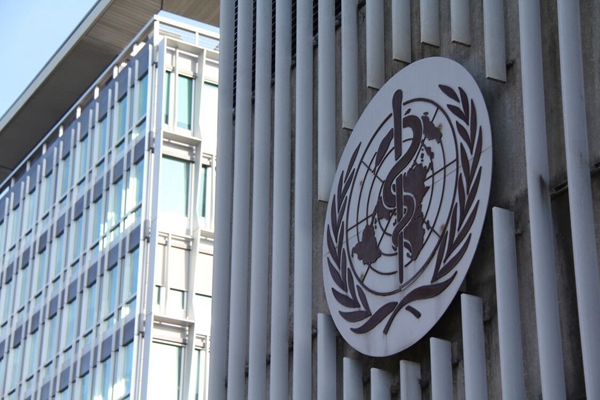Multilateralism a beacon for the future
- By George N. Tzogopoulos
 0 Comment(s)
0 Comment(s) Print
Print E-mail China.org.cn, April 24, 2020
E-mail China.org.cn, April 24, 2020

The global battle against COVID-19 is continuing. Some countries have been able to bring the virus under control, others are struggling. The U.S. is currently experiencing a contemporary drama drawing international sympathy.
Unfortunately, the ongoing fight has been largely overshadowed by politicization. The U.S. administration underestimated the severity of the situation and failed to take preventive measures to protect American citizens.
For a long period of time it gave the impression that America could be immune. This egregious management has led to the highest number of cases and fatalities in the world, and has become an issue of political squabbling within the country. It comes to no one's surprise that China is also being publicly targeted.
President Donald Trump went further. He criticized the WHO, threatened to withhold funds and finally announced his decision to freeze payments. Only a few weeks ago he participated in the virtual G20 summit pledging international cooperation in public health and agreeing with other leaders to do whatever might be required to deal with the virus.
This is indicative of how the world looks in the last years. Unpredictability and uncertainty are recurrent elements of international politics.
The WHO has already begun working with partners to fill any resulting financial gaps, to ensure its activities can continue uninterrupted. Even if the gap is filled, to cut off funding for this organization in the middle of a pandemic cannot be easily understood.
Like every international agency the WHO makes mistakes, which will be reviewed by member-states in due course. And there is certainly room of improvement in its services. This does not mean it no longer constitutes an essential body to respond to public health crises.
Beyond COVID-19 the WHO has played a critical role in combating several diseases and improving the living conditions for children and people in need.
The recent Trump announcement caused a wave of negative reactions. Democratic Senator Patrick Leahy believes it "makes as much sense as cutting off ammunition supplies to an ally as the enemy closes in."
Philanthropist Bill Gates said it is "as dangerous as it sounds," and the U.S. Chamber of Commerce and the American Medical Association similarly complained. The international response was also negative. U.N. Secretary General Antonio Guterres and four members of the Security Council along with Germany expressed their concern. The EU's foreign policy chief Josep Borrell saw no reason justifying Trump's move.
Multilateralism is key for all world challenges to be better addressed. And these challenges will not finish with COVID-19. Climate change, for instance, will soon be back on the agenda. This is another theme where the U.S. administration has charted its own course. Washington's exit from the Paris Agreement does not substantially differ from the recent WHO funding withdrawal.
While American leadership is fading, international responsibility remains the great desideratum. A crisis entails both risks and opportunities. China is continuously working with other partners including the EU.
This has become evident during the current pandemic. It's not only about medical assistance offered by Brussels to Beijing and vice-versa. It's also about the exchange of information. A relevant video conference between China and countries from Central and Eastern Europe was organized in mid-March.
Similar teleworking groups were organized between Chinese and European health officials. More importantly, China has already agreed with France and the U.K. to a global ceasefire on the initiative of President Emmanuel Macron. Russia is expected to sign up.
For countries seeking to shape the world, there are two paths to take: unilateral and the multilateral. Leadership is not judged by breaking international norms for political reasons. It is judged by preserving them and contributing to global good.
George N. Tzogopoulos is a columnist with China.org.cn. For more information please visit:
http://91dzs.com/opinion/GeorgeNTzogopoulos.htm
Opinion articles reflect the views of their authors, not necessarily those of China.org.cn.
If you would like to contribute, please contact us at opinion@china.org.cn.





